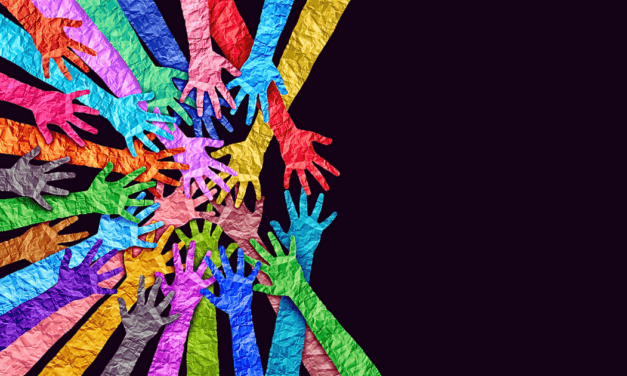This article first appeared in the Christian Research Journal, volume 23, number 4 (2001). For more information about the Christian Research Journal, click here.
SNYOPSIS
From humble beginnings, Oprah Winfrey has risen to a position of unrivaled media influence. In attempting to transform the lives of her 22-million member audience, Winfrey has become the leading moral and spiritual voice in popular culture. While much of what she promotes through her various media venues is laudable, a streak of occultism runs deep in many of her programs. The people Winfrey choose to speak for her include many of the most influential voices in the New Age movement, such as Marianne Williamson, Iyanla Vanzant, Gary Zukav, and Carolyn Myss. In giving these people a national platform, Winfrey has become the biggest contemporary disseminator of New Age belief systems. We can credit Oprah Winfrey with making the New Age normal.
The enormous popularity of Oprah’s lifestyle gurus reflects narcissisms run amok in modern life, the breakdown of community, and the spiritual rudderlessness of our time. The Christian community must respond to Winfrey’s growing New Age influence by developing solid apologetic approaches based on the clearest possible understanding of New Age thinking. Within our own spheres of influence, we can gently but firmly encourage a change in focus from the individual self as the center of the universe to the God revealed in Scripture as the center of the universe. Finally, we can examine our own methods and traditions to understand how we can better reach people in Winfrey’s demographic.
The weather was frigid in Chicago in January 1998, and the heat was out in the Robert Taylor Homes. Pipes froze and burst. Water gushed into the apartments of impoverished residents and froze on the floors. Destitute mothers and their children huddled close to the open doors of their ovens, trying to warm themselves. During this crisis, a youth worker from this infamous public housing development was in a nearby WalMart buying blankets for residents when he noticed Oprah Winfrey and her crew filming a segment for her TV show. He informed one of Winfrey’s employees about the conditions at Robert Taylor. Word about the horrible plight spread among the crew, and soon Winfrey herself made a deal with WalMart to buy 500 space heaters for the residents at the Robert Taylor Homes.1
Avoiding grandstanding or an ostentatious show of wealth, Winfrey simply did what any good person with the means should do. She saw a need and met it. When asked about her involvement, she put the focus on the problem rather than on herself. It’s easy to respect a woman like that. Given her focus on personal integrity, it is challenging for the thoughtful Christian to critique the numerous errors of Winfrey’s New Age gurus without being disrespectful or unappreciative of Winfrey’s good intentions.
Moreover, when considering her meteoric rise from humble beginnings to the heights of wealth and power, it’s even harder to criticize her. Born in the midst of the civil rights struggle in 1954 to unmarried parents in Koscuisko, Mississippi, Winfrey spent her preschool years in her grandmother’s care. Eventually, she moved to Tennessee, where she entered the teenage beauty pageant circuit. During her reign as a beauty queen, she was offered the chance to read copy on a radio program, and her career as a broadcast journalist began.2
She was only 19 when she became news anchor at WTVF-TV in Nashville — the youngest person and the first African-American to hold that position. After a few years as a reporter in Baltimore, she landed a spot as a morning talk show host at WLS-TV in Chicago.3 As her skills as an interviewer and her uncanny ability to relate to her female audience grew, so did her remarkable influence.
The net worth of Winfrey’s business empire is now approaching the $1 billion mark. She owns the Harpo Entertainment Group, which consists of Harpo Productions, Harpo Films, Oprah Winfrey Presents, Harpo Studios, The Oprah Winfrey Show, Oprah’s Book Club, and Oprah’s Angel Network. She controls Oprah Online and is in a joint venture with Hearst Magazine to produce O: The Oprah Magazine.4 The first issue of her magazine sold 1.6 million copies.5 Winfrey also gives away millions of dollars every year.6 Last year, she went on tour with her Personal Growth Summit, in which she preached the gospel of self-help and personal growth.7 Winfrey receives 10,000 letters and 4,000 e-mails each week. Her Web site receives 1.3 million visits per day, and her television show is seen by 22 million Americans and countless others in 160 foreign countries. Clearly, Winfrey has an audience. Exactly what is the attraction?
THE HOLY RITE OF SELF-IMPROVEMENT
Women all over the world want to know how to live better lives. They watch Winfrey because she promises she will strive to show them how. Indeed, that is her stated mission for the show:
I am guided by the vision of what I believe this show can be. Originally our goal was to uplift, enlighten, encourage and entertain through the medium of television. Now, our mission statement for “The Oprah Winfrey Show” is to use television to transform people’s lives, to make viewers see themselves differently and to bring happiness and a sense of fulfillment into every home.8
Every aspect of Winfrey’s empire has the noble aim of helping women become inspired and improve themselves. Oprah’s Book Club selections and the features in her magazines tell inspiring tales of people beating incredible odds to discover important truths about themselves.9 In her magazine, celebrities such as Camille Cosby, as well as Nobel Prize Laureates such as Holocaust survivor Eli Wiesel, bare their souls to Winfrey about how they’ve triumphed through their sufferings.10
Unfortunately, this mission has taken her — and by default, the nation — on a spiritual trek through the questionable theology of the New Age. An appearance on the Winfrey show turns self-help writers into familiar gods in the pantheon of self-improvement. Some are decidedly more committed to New Age concepts than others. Marianne Williamson, for instance, has devoted herself to disseminating the message of the New Age holy writ, A Course in Miracles. On the other hand, Phil McGraw, a Ph.D. psychologist, found himself dispensing eminently practical relationship advice on Winfrey’s show, after he advised her on how to present herself during her infamous beef industry lawsuit several years ago. Suze Orman, the show’s financial advisor, has frequent frenzied outbursts of New Age thought, tempered by the fact that she has actual practical information to share. For the most part, Orman just wants us to be rich.
Regardless of their methods or message, Winfrey’s stable of spiritual and self-help advisors all become overnight sensations. Their books and tapes sell, their speaking schedules fill, and their influence on the spiritual state of the nation often is insidious.
What is it about Winfrey that has brought so many Americans into the practice of New Age navel gazing? First of all, the rise of television to cultural dominance with its attendant cult of celebrity and promotion of materialist values has created a yearning for a rarified lifestyle of exoticism and privilege. Oprah’s lifestyle television allows us to prate by proxy with Gwenyth Paltrow about yoga one day and chat about chakras with Deepak Chopra the next. Winfrey offers the promise: “I can achieve my wildest dreams. You can, too.” She makes the glitterati known to us, even though we will never be known to them. She whispers, “See? They’re not so different from you.” Her show creates the feeling of an actual relationship.
It’s more than that, though. The collapse of community and the declining influence of religion has created a moral/spiritual vacuum. The Oprah Winfrey phenomenon is a symptom of the decades-old search for meaning in self-obsessed American culture. We can see the seeds of Winfrey’s success sown in Robert Bellah’s classic sociology study, Habits of the Heart. In it, he includes the following description of Sheila Larson, a young woman
who describes her faith as “Sheilaism.” “I believe in God. I’m not a religious fanatic. I can’t remember the last time I went to church. My faith has carried me a long way. It’s Sheilaism. Just my own little voice.” Sheila’s faith has some tenets beyond belief in God, though not many. In defining “my own Sheilaism,” she said: “it’s just try to love yourself and be gentle with yourself. You know, I guess, take care of each other. I think He would just want us to take care of each other.”11
Sheila is the woman that Winfrey woos. Winfrey enters Sheila’s spiritual vacuum and attempts to do her a favor by filling the void with her own set of rather questionable prophets. While she does not, as a rule, announce the details of her own particular religious beliefs, her guests reveal her decidedly New Age credo. Mixed between days filled with fluffy celebrity gossip from Julia Roberts and entertaining tips from Martha Stewart, Winfrey provides the Sheilas of the world with an unhealthy dose of New Age deception. While the parade of gurus that Winfrey has launched is too numerous to explore fully here, what follow are the dossiers of her more popular spiritual advisors.
THE WILLIAMSON EFFECT
Born in 1952, Marianne Williamson grew up in the Baby Boom Generation. In 1977, she stumbled upon the New Age epic, A Course in Miracles.12 In the preface to her book A Return to Love, she describes the effect those volumes had on her: “This was…my path out of hell…I could feel almost immediately that the changes it produced inside of me were positive…I began to understand myself, to get some hook on why my relationships had been so painful, why I could never stay with anything. Most importantly, I began to have some sense that I could change.”13
A Course in Miracles was allegedly “channeled” by a psychology professor named Helen Schucman.14 Its deceptive teachings about Christianity have been previously noted in the Journal.15 It is also the unofficial holy writ of many New Age adherents. To a significant degree, it owes its popularity to Marianne Williamson and her appearances on Winfrey’s show.
Williamson currently writes a monthly “think piece” for Winfrey’s magazine, where she dispenses such purely New Age pearls as, “Quantum physics and other cutting-edge theories show consciousness to be more than a mere witness to external events: It is now recognized for its role in causing and transforming events. As sages have proclaimed throughout the centuries, the world is but a reflection of what we think.”16
Williamson is the pastor of Church of Today, Unity, in Warren, Michigan17 — one of the largest Unity School of Christianity churches in the United States. The Unity School is a pseudo-Christian sect founded by Myrtle and Charles Fillmore in 1889. It is based on a mixture of Christian terminology and pantheistic philosophies, particularly the late 1800s “metaphysical” movement known as New Thought. Updated to reflect current New Age philosophies, the usual New Age menu of beliefs are included in Unity ideas — reincarnation, the divinity of self a.k.a. Christ Consciousness, evil as illusory, love as all that is real, and so on. Spiritual practices from other religions, particularly Eastern religions, are affirmed, supported, and taught in Unity. Meanwhile, their particular interpretation of Christianity is emphasized.18
Williamson’s goal is to engage the New Age community in the political and social arenas. To that end, she and fellow New Age guru Neale Donald Walsch (Conversations with God) have founded the Global Renaissance Alliance. Its Vision Statement speaks for itself:
The Global Renaissance Alliance is a citizen-based, international network of spiritual activists. Our mission is to make a stand in our local and national communities for the role of spiritual principle in solving the problems of the world. We feel that a holistic political conversation — one which honors the power of both mind and spirit to help heal the world — is emerging throughout the global community. The GRA is like a mystical grid on which our individual prayers, meditations and actions for peace synergistically merge. As people throughout the world pool our compassion in service to a spiritually transformed planet, the energies of fear and limitation which now dominate the human race will begin to recede.19
Williamson recently edited Imagine, a collection of essays, written by (the cover copy boasts) “Leading American Thinkers” — people like cardiac doctor Dean Ornish and relationship pro John Gray. If these are America’s leading thinkers, we’re in deep trouble; yet, many of them have been honored self-help guests on the Oprah Winfrey Show. Author proceeds from Imagine go to the Global Renaissance Alliance.20 It will be interesting to observe this group’s activities, as members somehow confront societal evils whose objective existence the New Age has steadfastly denied.
IYANLA VANZANT: YORUBA, UNITY, AND THE INFINITE WAY
Like Winfrey, Iyanla Vanzant is a survivor. Having battled her way through horrible abusive relationships and poverty, Vanzant has reached the pinnacle of success with a host of self-help titles, her own institute, and a line of Hallmark cards. Her book jackets tell us she is an ordained minister. A call to her institute to inquire about her denominational affiliation was politely turned away, but a Web search led to a description of her initiation into the Yoruba priesthood.21
The Yoruba, for those among the uninitiated, is a large group of Africans living in Western Africa. The polytheistic, ancestor-worshiping religion of the Yoruba is gaining in popularity among African-Americans. The gods of the Yoruba pantheon are collectively known as “orisha.” Scholars count at least 400 orisha in the Yoruba religion.22 Vanzant thanks only six of them in the acknowledgements of her book, In the Meantime.
In the same breath, Vanzant thanks another New Age icon, Joel Goldsmith, calling his work “a blessing in my life.” Goldsmith, who died in 1964, was a practitioner of Christian Science until he had a falling out with the Mother Church in Boston. He developed his own branch of mind-over-matter spirituality, called The Infinite Way, which survives through his books and audiotapes.23 Vanzant claims Goldsmith as her spiritual mentor. She had been reading many spiritist teachers, but “when I read Practicing the Presence, I really do believe that Goldsmith’s spirit spoke to me and…it all began to make sense.”24
In addition to her interests in Yoruba and Infinite Way beliefs, Vanzant is also a convert to A Course in Miracles. At first, however, she had some reservations:
It’s hard to find the traditional Jesus of the Gospel in the Course. Many African-Americans have been religiously abused with the Gospel of Jesus. One of the first thoughts that comes into your mind is that you might be committing a sin just by reading the Course. You’re so used to other people telling you what God is, and what you should believe, that it takes a while to understand that the Course helps you develop a direct relationship with God by embracing the principles that Jesus taught, and really living those principles.25
Vanzant’s comments raise troubling (and questionable) issues for Christians — “African Americans have been religiously abused with the Gospel.” Once we had Christian pastors helping us with our faith; now we have Yoruba priests such as Vanzant dreaming up belief systems. Here is a sample from her book, In the Meantime: Finding Yourself and the Love You Want:
The concept of universal love refers to the love that God has for all of God’s creations. It is that love that life is, the manifestation of God’s energy. It is the love extended by life to us all. Universal love, God’s love, is the only real love that exists. It is the love our soul longs to experience and comes to life to experience. Universal love transcends the self and the need of self, moving us into communion with the energies of the universe and the love of all living things. Universal love has no conditions. It accepts all as is, because All is the true identity of God.26
These comments are in the vein of New Thought/Unity School of Christianity. Vanzant also acknowledges her prayer partners: the Reverend Barbara Lewis King, founder and minister of the 2,000-member Hillside Chapel and Truth Center in Atlanta (a New Thought church)27 and the Reverend Linda Beatty Stevens, an ordained Unity minister, who runs the Transforming Love Community in Detroit.28
Ironically, despite all this talk of self-transcendence, the final tribute on her acknowledgement page is to her Self.29
GARY ZUKAV: HIGH PRIEST OF OPRAH
Despite his popularity among Winfrey’s fans, Gary Zukav is among the least clear thinkers of our time. In 1989, he wrote a rambling quasireligious book, based loosely on a combination of Hinduism and Western values, called The Seat of the Soul. Winfrey found it a few years later, read it, and since then, Gary Zukav has become Senior Spiritual Advisor to Winfrey’s audience in the Change Your Life phenomenon.30
Zukav’s main message is that we’re here on this earth to learn lessons, and we’ll be back again and again until we get it right. He softens the concept of karma by suggesting that people agree to their next life of suffering out of love, so they can learn the lessons they need to learn, or, better yet, to teach somebody else a lesson by their example. Somehow, this makes the karmic experiences of child abuse or mass starvation seem a little kinder and gentler — more sanitized for the benefit of middle-class American sensibilities.
Zukav speaks gently but with an air of spiritual authority: because he thinks he knows the ways of the spiritual world, he dispenses his wisdom to Winfrey’s audience.31 In fact, he seems to have consulted nobody at all in his attempts to create a new religion. In The Seat of the Soul, however, he does credit intuitive healer Caroline Myss as his main influence.
CAROLINE MYSS: HEALING AND HINDUISM
Caroline Myss is yet another alumna of the Oprah Winfrey show. She received a master’s degree in theology from Mundelein College in 1979 and a Ph.D. in Energy Medicine from Greenwich University in 1996. In her book, Anatomy of the Spirit, she blends the seven Hindu chakras, or points of concentrated spiritual energy, with Roman Catholic sacraments and mystical Jewish terminology to come up with a syncretistic, pseudospiritual system of healing. Filled with anecdotes and odd combinations of personal and sociological ideas, the book is a complicated and harrowing read.
For instance, she writes, “Seen from our first chakras, the energy age of civilization is an ‘information age,’ supported by the computerization of businesses, classrooms and households. From our seventh chakra, however, we can see it as an age of consciousness that requires the energy management skills of the mystic: prayer, meditation, continual self-examination, and unity of all people. Ironically, both eras are the same; we are all on the same path.”32
All evidences to the contrary, she tells us, “All of my earthly studies of heaven have led me to believe that heaven is not a complicated realm, therefore one’s personal theology should not be complicated.” She sums up her “theology” as follows:
- All circumstances can be changed in a moment, and all illness can be healed. The Divine is not limited by human time, space or physical concerns.
- Be consistent: Live what you believe.
- Change is constant.…
- Never look to another person to make you happy.…
- Life is essentially a learning experience.…
- Positive energy works more effectively than negative energy in each and every situation.
- Live in the present moment, and practice forgiveness of others.33
And that is all the “God” that Sheila gets.
BATTLING THE COSMIC MARSHMALLOW
All is not well with the devotees in Winfrey’s rose-colored world of the New Age. People fail to change. They frustrate themselves attempting to maintain the constant joy and happiness that is so sought after in the New Age universe. They’re told it is completely their own fault they cannot achieve this state of bliss; but they should be gentle with themselves, since the emotion of frustration has such low “vibrational energy.” Obviously, they have more to learn. Why not buy another book?
Debbie Ford, yet another Winfrey lifestyle expert, is a faculty member at Ayurvedic physician Deepak Chopra’s Chopra Center for Wellbeing. In Ford’s book, The Dark Side of the Light Chasers, she reveals the frustration brewing among her devotees: “In my seminars I often work with people who have invested in years of therapy, transformational seminars, breath work, and other healing modalities. They ask the same questions: ‘When will it end? When will I be done? How much more work must I do on the issues that come up over and over again?’”34
This quote is reminiscent of the apostle Paul’s rhetorical complaint in Romans 7:15: “I do not understand what I do. For what I want to do I do not do, but what I hate I do.” Paul, however, knew the cure: “Who will rescue me from this body of death? Thanks be to God — through Jesus Christ our Lord!” (7:24–25).
Oprah Winfrey, all of her New Age guests, and the publishing industry that supports them are savvy enough to know that, human nature being what it is, New Age adherents will never be done; they will never be healed. Winfrey will continue to try to be helpful to the Sheilas of the world, who limp along in their spiritual and emotional lives; but, in following the lead of Winfrey’s gurus, the Sheilas of the world will never do more than limp.
They will limp to the bookstore and pick up New Age self-help books recommended by Winfrey — books that often use the name of Christ in ways that sound very spiritual, but are, in fact, wholly antagonistic to the gospel. They will turn inward once again in a vain attempt to save themselves from their own fallenness. They will continue to wonder when they will be done and how much more work they must do.
As well intentioned as Winfrey may be, she does Christ’s gospel tremendous harm by promoting authors with false teachings about Christ. It behooves the Christian community to examine these confusing New Age claims closely and be ready with a clear, compassionate defense of biblical teaching concerning Christ. As the critical reflection skills of the nation continue to deteriorate, the odd philosophies of the New Age become more familiar and acceptable. Christian apologists face the tremendous challenge of presenting the logic and truth of the gospel to a growing group of people who appear to be impervious to logic and truth. We need not only to explain the gospel but also to introduce New Age believers to the practice of critical reflection on their own faith. Rather than shrinking back from critical thought and philosophy, it is imperative that Christians set the standard of excellence in these areas.
Christians must also stem the tide of narcissistic self-absorption that has taken hold not only outside of the Christian community, but also within it. We can point out the truth, as Joseph Stowell, president of Moody Bible Institute, did when he said, “When life is about knowing me, there’s a certain hollowness and emptiness to it.…Going on an inner journey through myself is also a dreadfully nonbiblical activity, because if you really are on this pilgrimage of becoming a fully devoted follower of Christ, then life is no longer about knowing you. Life is about knowing Jesus.”35
Finally, Christians need to take the flight of people from our churches into alternative spiritualities seriously. If we are going to cast a critical gaze on other traditions, we also need to take a long hard look at ourselves. Is there anything in our own behavior, individually and collectively, that is driving people away from the cross of Christ? Of course, no one likes to hear about sin and judgment, and they are a necessary part of the Christian story, but are we also telling people, loud and clear, about the good news of Christ’s grace and love? More than striving and struggling to learn more lessons or to do more good, it is the sacrificial gracious love of Christ that the Shielas of the world need. May we communicate that love with all the winsomeness and wisdom we can muster.
Kate Maver, M.Div., Chicago Theological Seminary, was a theologically liberal graduate student and United Church of Christ pastor for 12 years before leaving the ministry in 1996. She became a “Christ-follower” in 1997 and is an active member of an evangelical congregation. Today she uses her education and experience to help people find Christ.
NOTES
- Mary Mitchell, “CHA Families Left Out in the Cold,” Chicago Sun-Times, 21 January 1999, Editorial Section.
- Deborah Tannen,“100 Most Influential Artists and Entertainers of the Century: TV Host, Oprah Winfrey,” Time, 8 June 1998.
- Oprah Winfrey Biography, Harpo Studios, Chicago, IL.
- “The Oprah Winfrey Show Fact Sheet” (Chicago, IL: Harpo Studios, 2000/2001 Season).
- Ibid.
- Tim Jones, “Brand Oprah: Star Turns Sterling Image into a Multimedia Powerhouse,” Chicago Tribune, 18 July 1999.
- Mimi Avins, “Flocking to the Church of Oprah,” Los Angeles Times, 25 June 2000, sect. E.
- “The Oprah Winfrey Show Fact Sheet.”
- Oprah’s Book Club Selections (http://www.oprah.com/obc/pastbooks/obc_pb_main.html).
- O: The Oprah Magazine publishes a monthly interview with an internationally known figure. “Oprah Talks to Camille Cosby,” May–June 2000; “Oprah Talks to Elie Wiesel,” November 2000.
- Robert Bellah, et al., Habits of the Heart, 2d ed. (Berkeley: University of California Press, 1996), 221.
- Marianne Williamson, A Return to Love: Reflections on A Course in Miracles (New York: Harper Paperbacks, 1993), xi–xvi.
- Ibid., xv–xvi.
- ACIM Fearless Reader (http://www.fearlessbooks.com/ContStory1.html# anchor1406703).
- See “A Course in Miracles: ‘Christian’-Glossed Hinduism for the Masses,” Christian Research Journal (www.equip.org/free/dc720.html).
- Marianne Williamson, “What You Think Is What You Get,” O: The Oprah Magazine, September 2000, 139.
- Unity Church of Today Warren Web site, www.churchoftoday.com.
- See John Ankerberg and John Weldon, Encyclopedia of Cults and New Religions (Eugene, OR: Harvest House, 1999), 540ff. See also Religious Tolerance Web site, Unity Page: http://www.religioustolerance.org/unity.html.
- Global Renaissance Alliance Web site (http://www.renaissancealliance.org/ GRA/index.html).
- Marianne Williamson, ed., Imagine: What America Could Be in the 21st Century (Emmaus, PA: Rodale Books, 2000), 413.
- Iyanla Vanzant, “Orisha Consciousness” (http://www.geocities.com/Athens/ Aegean/9765/iyanla.html reprinted from Oya’s Marketplace, Winter 1993).
- Art and Life in Africa Online (http://www.uiowa.edu/~africart/toc/people/ Yoruba.html).
- The Writings of Joel Goldsmith (http://www.christianscience.org/goldsmith.html).
- PhenomeNEWS exclusive interview with Iyanla Vanzant (http://www.phenomenews.com/publication/vanzant.html).
- ACIM Fearless Reader.
- Iyanla Vanzant, In the Meantime: Finding Yourself and the Love You Want (New York: Fireside, 1998), 190.
- Ministers on Wall Street: Barbara Lewis King (http://www.nyse.com/events/NT0005EBFA.html).
- Rev. Shaheera Homepage (http://members.aol.com/shaheerah1/bio.htm).
- Vanzant, 6.
- Kate Maver, Book Review, “The Story of Soul Stories,” Christian Research Journal 23, no. 3 (2001): 56–58.
- Oprah Winfrey Show, “Gary Zukav Answers His Mail,” 17 May 2000.
- Carolyn Myss, Anatomy of the Spirit: The Seven Stages of Power and Healing (New York: Three Rivers Press, 1996), 286.
- Ibid., 61.
- Debbie Ford, The Dark Side of the Light Chasers: Reclaiming Your Power, Creativity, Brilliance, and Dreams (New York: Riverhead Books, 1998), 56.
- Joseph Stowell, “The Jesus I Want to Know (Part 2),” 30 August 2000, Willow Creek Community Church, Seeds Resource Center Tape #C0035.








